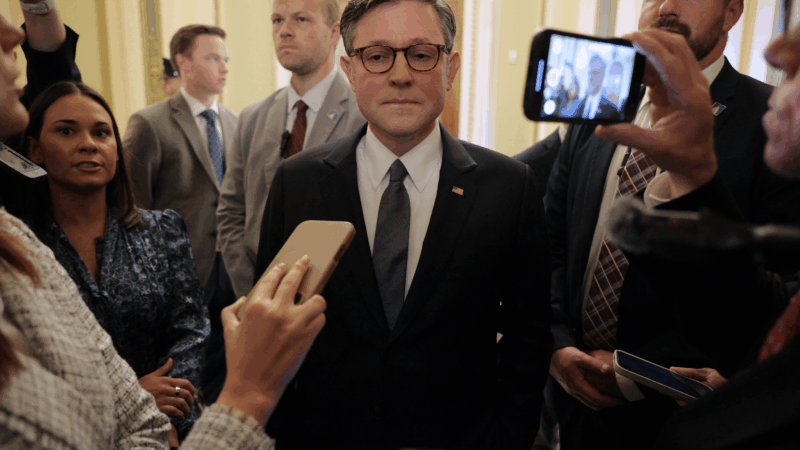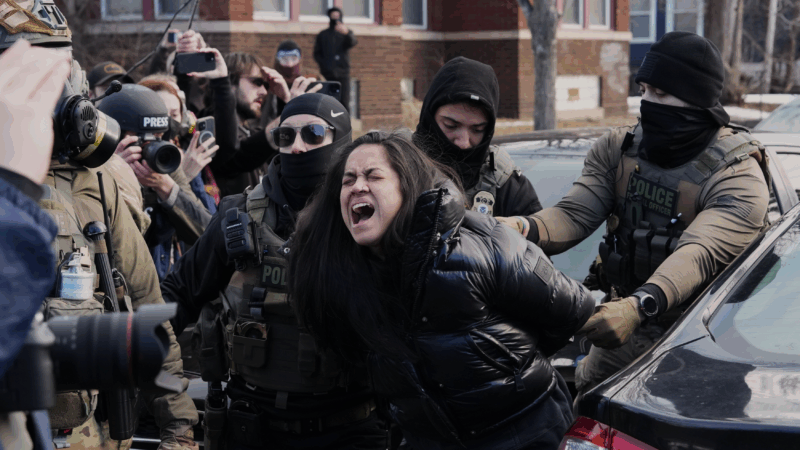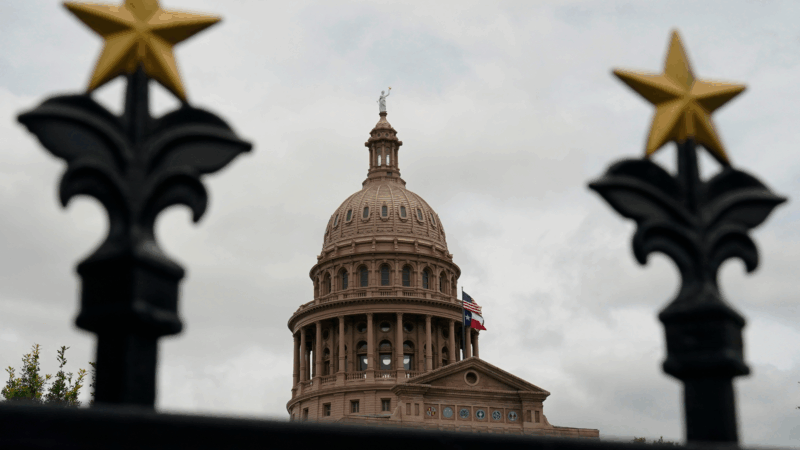Republicans release 7-week spending bill as Democrats warn of a potential shutdown
Two weeks before a possible government shutdown, House Republicans are unveiling legislation to fund the government through Nov. 21 and add security resources for government officials. It’s unclear they have the votes to pass it as Democrats call for further negotiations.
The stopgap bill extends current funding levels for federal agencies for seven weeks and adds $58 million to boost security for the federal judiciary and for executive branch officials, following a request from the White House. Republican leaders in the House added another $30 million to increase resources that lawmakers can use for their own security.
House Speaker Mike Johnson, R-La., told reporters on Tuesday the bill allows more time to come to agreement on year-long spending bills.
“We need responsible options to keep the government open while all this work continues and Republicans are committed to making that happen,” House Speaker Mike Johnson said Tuesday.
In recent days, President Trump used social media to urge Republicans in the House and Senate to unite around a so-called “clean” continuing resolution and accused Democrats of pressing for a shutdown. “In times like these, Republicans have to stick TOGETHER to fight back against the Radical Left Democrat demands, and vote ‘YES!'” the president posted on his platform, Truth Social.
Democrats have pressed Republicans for bipartisan talks on a short-term bill and are demanding that any spending extension should address expiring health care subsidies that are due to expire at the end of the year. Some Democrats are also demanding that a bill roll back the changes to the Medicaid program that were part of the GOP tax bill that was signed into law in July.
Speaker Johnson told reporters on Tuesday that there is “zero chance” Republicans will reverse any Medicaid provisions at this time. Instead, he said the debate over the Affordable Care Act subsidies is “a December policy issue, not a September funding issue.”
But, Senate Minority Leader Chuck Schumer, D-N.Y., warned that while the GOP may be able to pass a bill with GOP votes in the House, he needs 60 votes in the Senate to advance a funding measure. He said that Democrats want input in return for their support.
“If Donald Trump says no negotiations at all, then it’s Donald Trump’s shutdown,” Schumer said on the Senate floor on Tuesday.
The top Democrats on the House and Senate Appropriations Committees, Rep. Rosa DeLauro, D-Conn., and Sen. Patty Murray, D-Wash., issued a statement on Tuesday saying they have been working closely with their GOP counterparts on a bipartisan plan. They called on Johnson and Senate Majority Leader John Thune, R-S.D., to join those talks in order to avoid a shutdown threat.
“House Republican Leadership has decided they would rather take us to the brink of a shutdown instead of working with Democrats on a bipartisan continuing resolution to keep the government funded, protect Congress’ power of the purse, and improve health care,” DeLauro and Murray wrote.
Thune focused Tuesday on bipartisan support for a clean government funding extension that would allow Congress to work in regular order to move forward with individual spending bills this fall.
Thune said it’s Schumer’s right to oppose the bill, “but I would hope there would be Democrat Senators who would give us the requisite number of votes to get to 60 in order to keep the government open.”
House GOP leaders hold a narrow majority and they can only afford to lose two votes. Reps. Tom Massie, R-Ky., and Warren Davidson, R-Ohio, have indicated they oppose the GOP proposal. GOP leaders regularly rely on pressure to back the president among the party’s base to get bills through and may need to do that again.
The House is expected to vote by Friday. If the measure passes, the Senate will take it up ahead of the September 30 deadline.
At a clown school near Paris, failure is the lesson
For decades, students at the Ecole Philippe Gaulier have been paying to bomb onstage. The goal isn't laughs — it's learning how to take the humiliation and keep going.
In the world’s driest desert, Chile freezes its future to protect plants
Tucked away in a remote desert town, a hidden vault safeguards Chile's most precious natural treasures. From long-forgotten flowers to endangered crops.
Iran’s supreme leader warns any US attack would spark ‘regional war’
Iran's supreme leader warned Sunday that any attack by the United States would spark a "regional war" in the Mideast, further escalating tensions as President Donald Trump has threatened to militarily strike the Islamic Republic.
Minnesota citizens detained by ICE are left rattled, even weeks later
The number of immigration agents in Minnesota may be reduced, but they'll leave leave behind a changed community, including many U.S. citizens questioned and detained in recent weeks.
Gaza border crossing buzzes with activity after years of near-complete closure
Reopening the border crossing is a key step as the Israel-Hamas ceasefire moves ahead.
Democrat Taylor Rehmet wins a reliably Republican Texas state Senate seat, stunning GOP
Democrat Taylor Rehmet won a special election for the Texas state Senate on Saturday, flipping a reliably Republican district that President Donald Trump won by 17 points in 2024.








